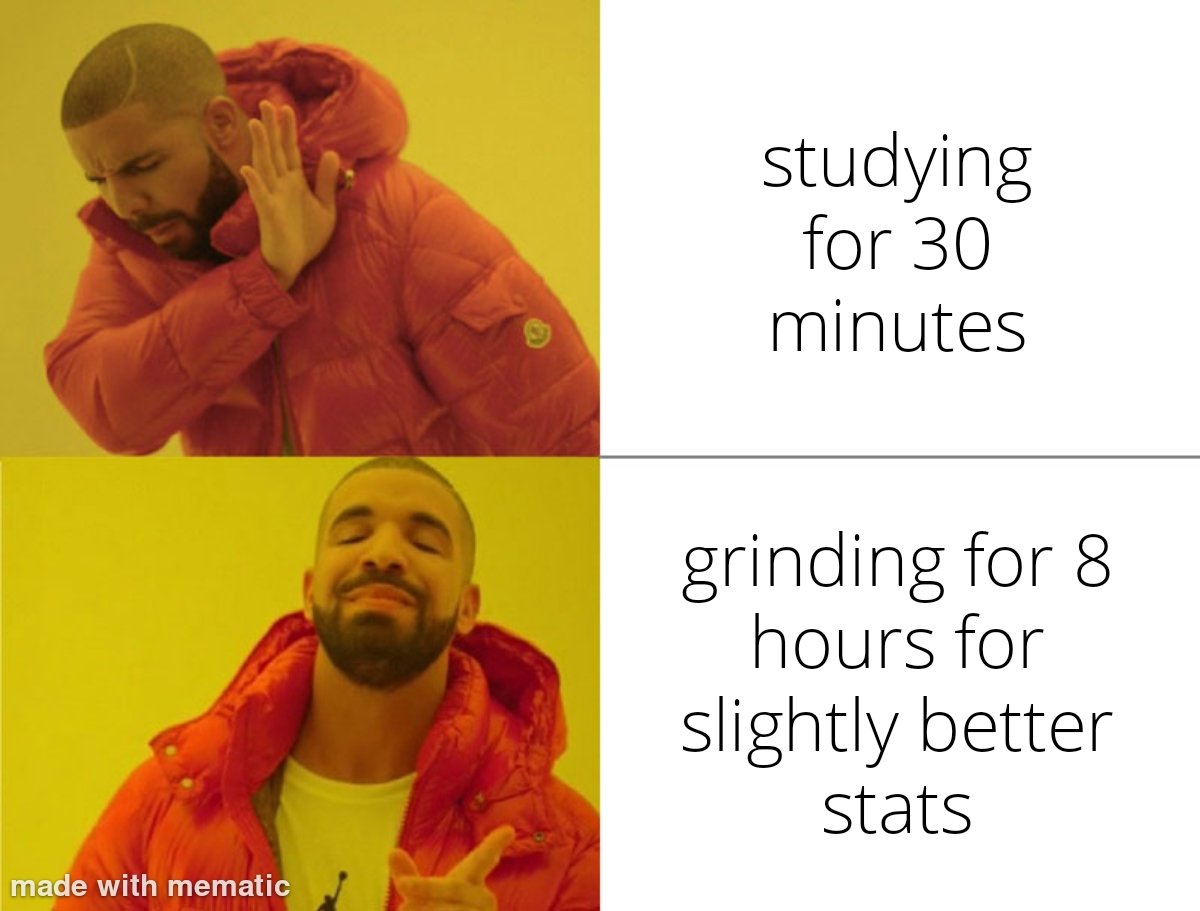this post was submitted on 14 Jul 2024
442 points (98.5% liked)
Memes
44925 readers
2967 users here now
Rules:
- Be civil and nice.
- Try not to excessively repost, as a rule of thumb, wait at least 2 months to do it if you have to.
founded 5 years ago
MODERATORS
you are viewing a single comment's thread
view the rest of the comments
view the rest of the comments

Why does real life not provide the same gratification hormones?
Obviously it should make me feel much happier and accomplished to do literally anything constructive with my time, even more so when my bank account total goes up from getting paid, than to have a mediocre time getting dunked on in an online shooter, but it doesn't work that way...
Are there any studies done on this? I know there are apps and systems that attempt to do just this, gameifying real life chores with moderate success. Why does this not work as well as one would expect? The psychology should be very interesting.
I've never gotten around to actually reading up on this, but I've always suspected it has to do with the frequency of gratification. In real life you could study for 8 hours and, while you'll learn a lot, you don't get that dopamine (or whatever) hit until you complete the test, succeed at the project, etc. Games, however, are constructed so that you get little rewards at regular intervals to keep you hooked, like levels, new gear, etc. Some, particularly a lot of mobile games, obviously prey on susceptible people with that loop, but even "regular" games can get pretty addictive with that sort of progression.
(I'm far from anti-gaming. It's my main hobby. This is just my guess at how the psychology behind it works.)
This might be an interesting read: https://celiahodent.com/understanding-the-success-of-fortnite-ux/